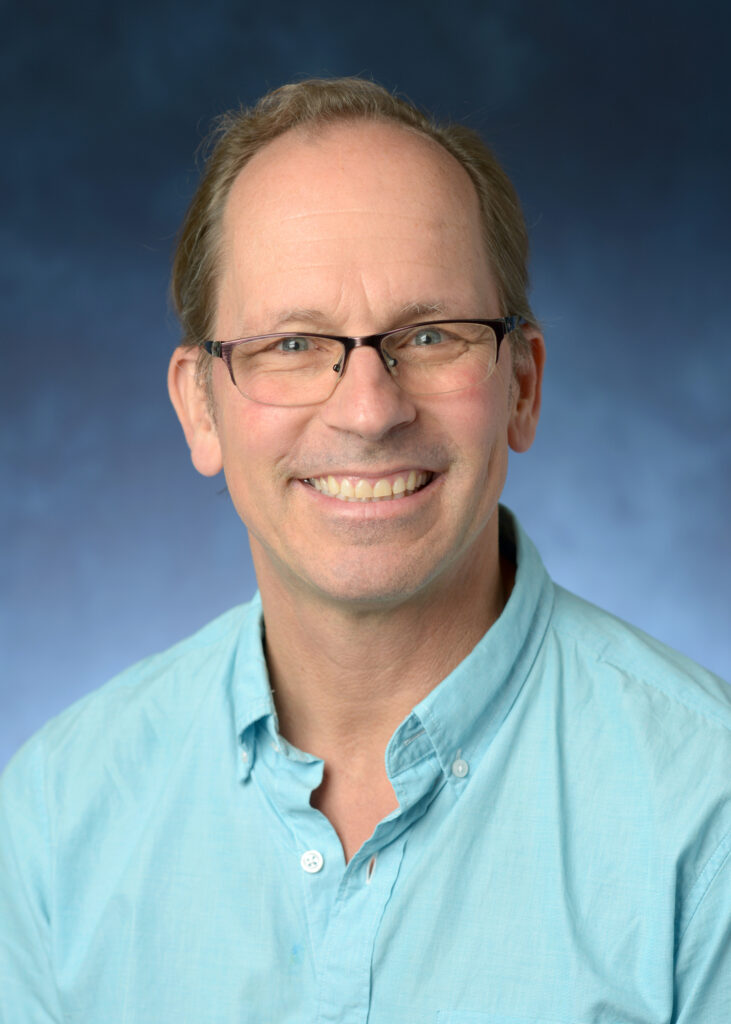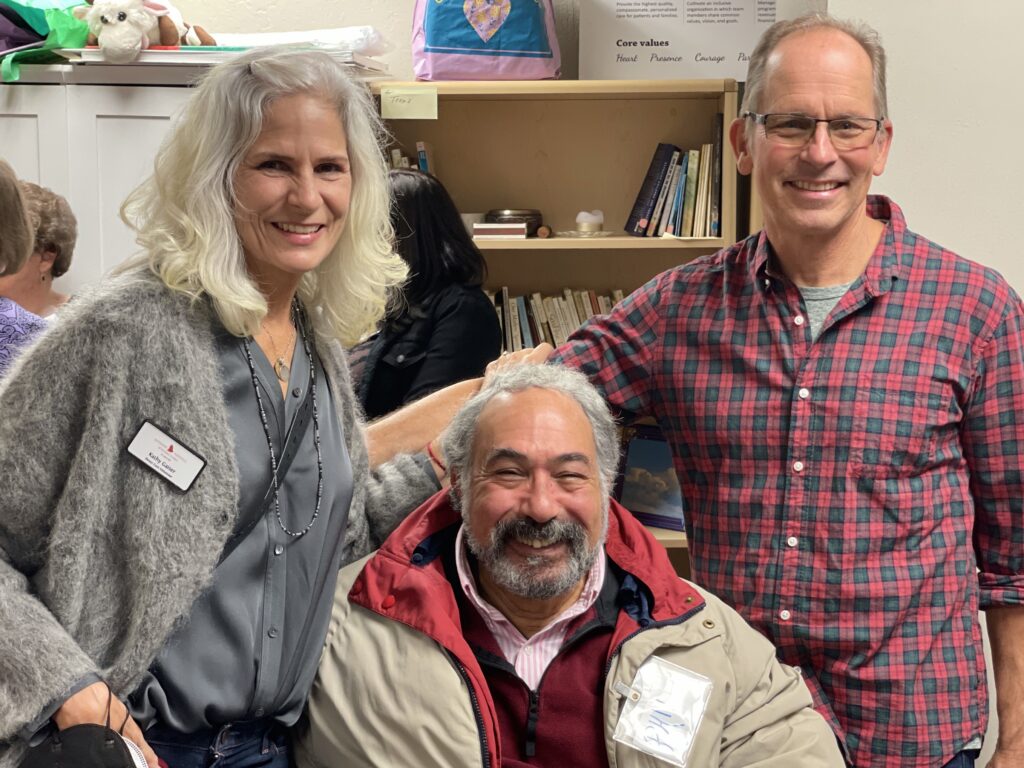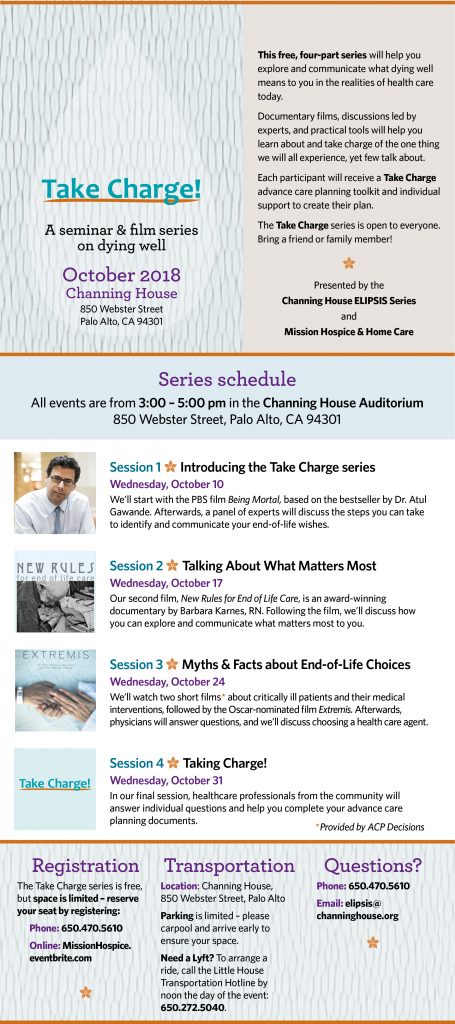Sharing expertise on end-of-life care with students worldwide
Mission Hospice clinicians provide continuing education for healthcare providers, internships for nursing, social work, chaplaincy, and counseling students, and in-services for staff at care homes and assisted living facilities.
This training is often close to home, but as in the case of a recent panel discussion, it can make connections on the other side of the world.
Helping us make these connections is our partner VIA (formerly Volunteers in Asia), an organization started at Stanford University that promotes experiential learning, cross-cultural understanding, and partnerships in the global community. Twice a year, VIA’s Exploring Health Care program convenes 15-25 students from medical universities around the world to explore a range of health care topics.
 As part of this program, a panel of experts from Mission Hospice spent time with 15 medical, nursing, and pharmacy students from Japan, Myanmar, and Zambia. The team (Bereavement Manager Christine Kovach, Nurse Gabby Jimenez, Spiritual Counselor Gloria Thomas, and Palliative Care Social Worker / Bereavement Counselor Lucia Hollowell) described their roles, discussed how hospice and palliative care supports patients and families, and answered the students’ questions.
As part of this program, a panel of experts from Mission Hospice spent time with 15 medical, nursing, and pharmacy students from Japan, Myanmar, and Zambia. The team (Bereavement Manager Christine Kovach, Nurse Gabby Jimenez, Spiritual Counselor Gloria Thomas, and Palliative Care Social Worker / Bereavement Counselor Lucia Hollowell) described their roles, discussed how hospice and palliative care supports patients and families, and answered the students’ questions.
Lucia Hollowell explained that she appreciates being able to see the whole person during home visits. “We get to visit patients in their homes, which provides a different picture than the tiny window we see in the hospital. We see who they are, what their interests are, what their support system looks like. They are much more than their disease or their diagnosis. We can see them as human beings that are worthy of respect and really good care. They will then internalize that, and it can lead to better outcomes.”
Program Director Lina Yamashita said the participants’ training doesn’t include much education about hospice and interdisciplinary care. They appreciated learning the difference between the medical goal of curing and the comfort goal of hospice.
One attendee wrote, “I learned how deserving and rewarding working in hospice care is. I’m a Buddhist, and according to our religion, the time at the end of life is very important because of the belief that the things that we do and face when we are dying can affect our next life. Today I learned that the time we have at the end of life is essential and precious for everyone regardless of religion.”
Our staff and volunteers are committed to sharing their expertise so that compassionate end-of-life care may be valued by and available to everyone – no matter who they are or where they live.
Craig Schroeder puts the heart into volunteer support
 March 2023
March 2023
Over a decade ago, Craig Schroeder was ready for a career change and had applied to nursing school to become a trauma nurse. His friend Dr. Gary Pasternak, who had been working with Mission Hospice for several years, suggested that Craig would get valuable experience by volunteering. Craig completed his volunteer training in 2012 and dove right in, telling Volunteer Director Hank Nourse that he wanted three patients at a time.
He remembers fondly one particularly special patient he visited for nearly a year: Helen Lagen, who co-founded Mission Hospice in 1979. The pair became close friends.
Helen, who was bedridden, loved being outside in her garden. Each time he visited, Craig moved her to a gurney and took her outside where they sat together and talked. “It was an honor and a privilege to visit Helen. It was like taking care of my grandmother again. I learned so much about Mission Hospice.”
The experience of volunteering changed the trajectory of Craig’s life. Instead of heading to nursing school, in 2015 he joined the Mission Hospice staff as a Volunteer Coordinator – and when Hank retired three years later, Craig became our Volunteer Services Director.

Together with Volunteer Coordinators Jennifer Guevarra and Constance Sweeney, Craig now supports around 130 volunteers who work throughout the Peninsula and South Bay. He leads an intensive 26-hour volunteer training twice a year, holds monthly volunteer support meetings, and offers volunteers continuing education and special training.
Craig explains that the Mission Hospice training is unique: while most hospice agencies rely on computer-based virtual training and testing, Mission Hospice volunteers are taught by our own experts, based on our philosophy of care.
“The throughline is heart-centered communication, listening, and compassion at the bedside.”
Craig certainly brings his heart to the program. A trained chef, he prepares and serves lunch to the volunteers at each of the Saturday training sessions. “No one goes hungry around me,” he says proudly.
Craig sees this kind of above-and-beyond support for volunteers as a part of our personalized approach. “Our volunteers support patients and families at the most transitional, intimate, and difficult time of life,” says Craig. “They need good training and good support to do their job. Our volunteers really make our organization stand out – they are the heart of Mission Hospice.”
Long-time volunteer Paul Smith says the feeling is reciprocal. “Craig makes each volunteer feel that they matter, and he gives you his complete attention and focus. He leads by example, and is sincere, insightful, supportive, and a total believer in the work we are all doing.”
Volunteers come to Mission Hospice from all over and for all kinds of reasons, and Craig has expanded the program to include high school and college students. All volunteers are trained to leave whatever’s going on in their life – good or bad – at the door. “The patient and family get to set the agenda,” he says. “The volunteers bring the magic.”
To make this magic happen, Craig and his team put a lot of thought into the match between a volunteer and a potential patient – each one unique. “We think about the patient and their needs, as well as the volunteer’s skills and experience,” he says. “A patient and family have only one chance at dying, and the match has to work for everyone.”
Craig says he is proud to be able to support our volunteers and – through them – our patients. His leadership is personal and heart-centered. “Everyone has a story,” he says. “Everyone has triumphs and losses in life. And everyone deserves respect, kindness, and compassion.”

